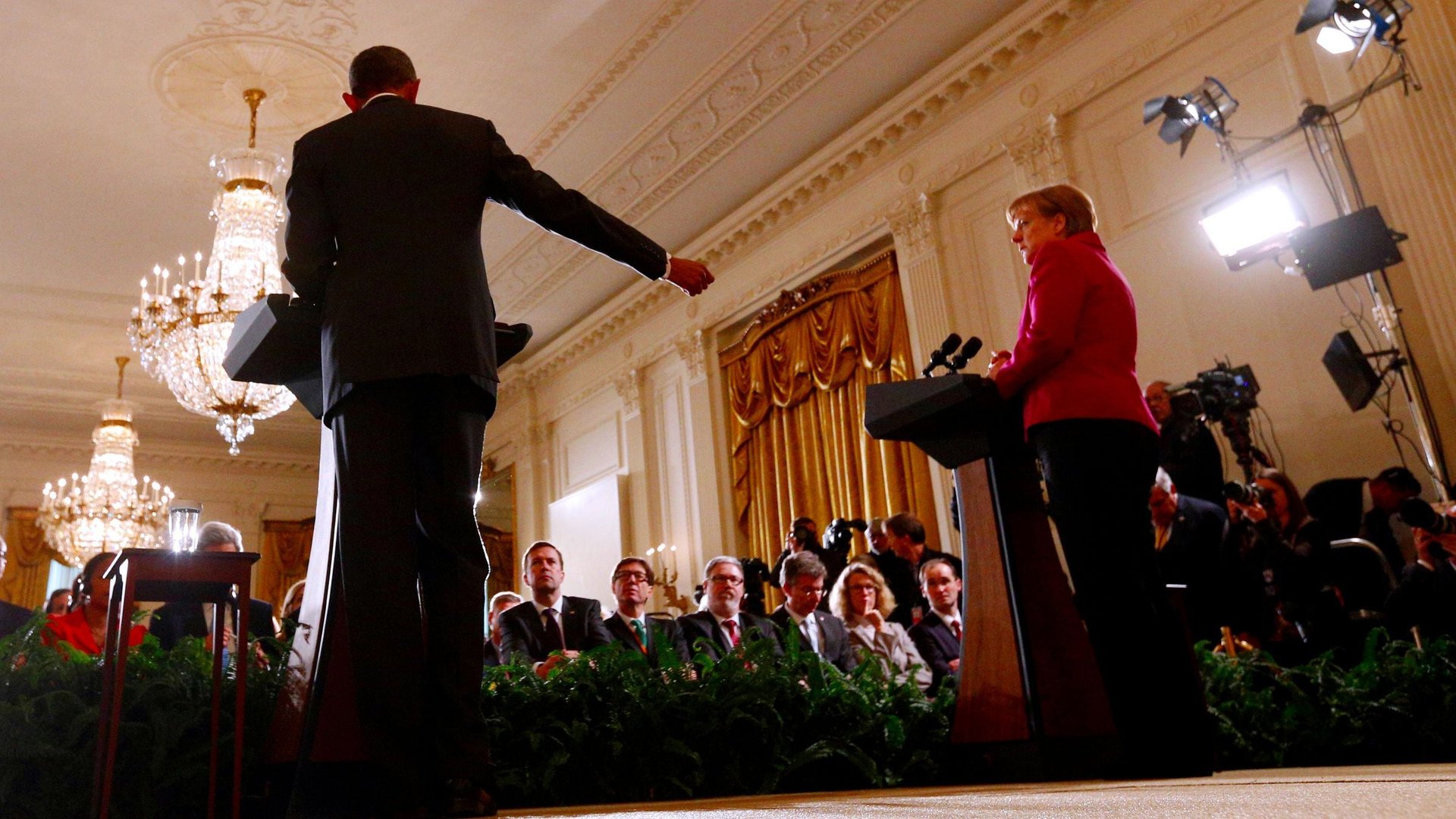What can Obama’s reliance on sanctions really solve?
When US president Barack Obama and visiting German chancellor Angela Merkel met reporters today, the world got a sense of how complicated Obama’s relationship with economic warfare is: Russia, he said, has played a “constructive role” in sanctions-driven nuclear negotiations with Iran—just minutes after he noted the importance of sanctions in driving Vladimir Putin’s wayward regime out of Ukraine.


When US president Barack Obama and visiting German chancellor Angela Merkel met reporters today, the world got a sense of how complicated Obama’s relationship with economic warfare is: Russia, he said, has played a “constructive role” in sanctions-driven nuclear negotiations with Iran—just minutes after he noted the importance of sanctions in driving Vladimir Putin’s wayward regime out of Ukraine.
The complications come largely because Obama has a very uncomplicated relationship with traditional warfare: He prefers to avoid entangling the US in armed conflicts in which military superiority is no guarantee of political victory, and from Ukraine to Syria, that seems like most of them. Economic sanctions are a far better option, by his cost-benefit analysis, and the administration’s official National Security Strategy (pdf) is replete with discussions of sanctions as “an effective tool for imposing costs on irresponsible actors and helping to dismantle criminal and terrorist networks.”
“Increasingly, you’re seeing the Americans looking at this as the primary instance of policy,” Eurasia group Chairman Cliff Kupchan said last month. His consulting firm identified the weaponization of finance as a major trend in 2015, noting the increasing willingness of US officials to target large institutions and the first-ever application of sanctions in response to a cyber attack, which the US deployed after a digital security breach of Sony Entertainment was attributed to North Korea.
But how effective are sanctions? Critics note that North Korea’s nuclear ambitions remain unabated, even after its economy has been reduced to metaphorical rubble by global isolation. Russia, despite a sanctions-driven recession and the even bigger problem of low oil prices, isn’t anywhere near pulling out of Ukraine, with Merkel planning a final diplomatic push for this spring before the West considers major escalations in military aid. And Obama just began dropping financial sanctions against Cuba, noting that a half-century of economic restrictions had done little to oust the country’s socialist government or serve US interests.
The major test for sanctions today are the negotiations with Iran over its nuclear program. After blowing through last fall’s deadline, negotiators hope to reach a deal by March that would lift sanctions and allow Iran to develop peaceful nuclear power in exchange for certainty that the country isn’t developing nuclear weapons. But if Iran can’t “get to yes,” as Obama says it should, will sanctions have failed? Or do we just expect too much from what they can accomplish?
Political scientist Daniel Drezner observes that there is little evidence that sanctions have the coercive effect the administration hopes for—they do little more than increase the costs of decisions made by international actors, but they can’t force meaningful concessions. But Drezner identifies one open question: whether sanctions deter other governments that might consider following Moscow or Tehran in bucking the international community. Perhaps Obama sees this as the modern version of deterrence, tailored to a world that’s dominated by global finance.